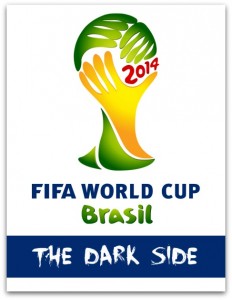Hooray for exciting, world-class soccer! Boo for vuvuzelas and overspending!
In 2003, Brazil banned the sale and consumption of beer at soccer stadiums due to the high rate of violence and deaths during rowdy games. For the 2014 World Cup, one of the primary sponsors is Budweiser…which lead organizing body FIFA to successfully lobby the Brazilian government to rescind the ban during the World Cup.
- One of the stadiums where games will be played is a brand new, $270 million complex built in the city of Manaus especially for the World Cup. (The U.S. team will play one of its first games there.) In total, only four games will be played in Manaus, and the city does not have a team major enough to use the stadium when the Cup is complete. In other words, the stadium will be obsolete by August.
- That $270 million to build the stadium is inflated due to the remote location of Manaus in the rainforest. Building supplies had to be shipped across the Atlantic Ocean from Portugal and up the Amazon River to the building site. Still, it’s a relatively small part of the $11 billion the Brazilian government spent to prepare for the World Cup.
- You might not be able to remember who won the 2010 World Cup (it was Spain), but you probably remember the vuvuzela—those homegrown horns with the droning, ear-splitting pitch that fans used to deafen each other during the South Africa-set tournament. Brazil subsequently had its own native noisemaker ready to go: the caxirola, a handheld, bell-shaped piece of plastic filled with beads that makes a hissing sound when its shaken. In April, hundreds of fans brought them to a soccer match in Brazil and threw them on the field, temporarily halting the game. That got FIFA’s attention, and the caxirola was banned from the World Cup preemptively, mostly because they could be used as a weapon.








